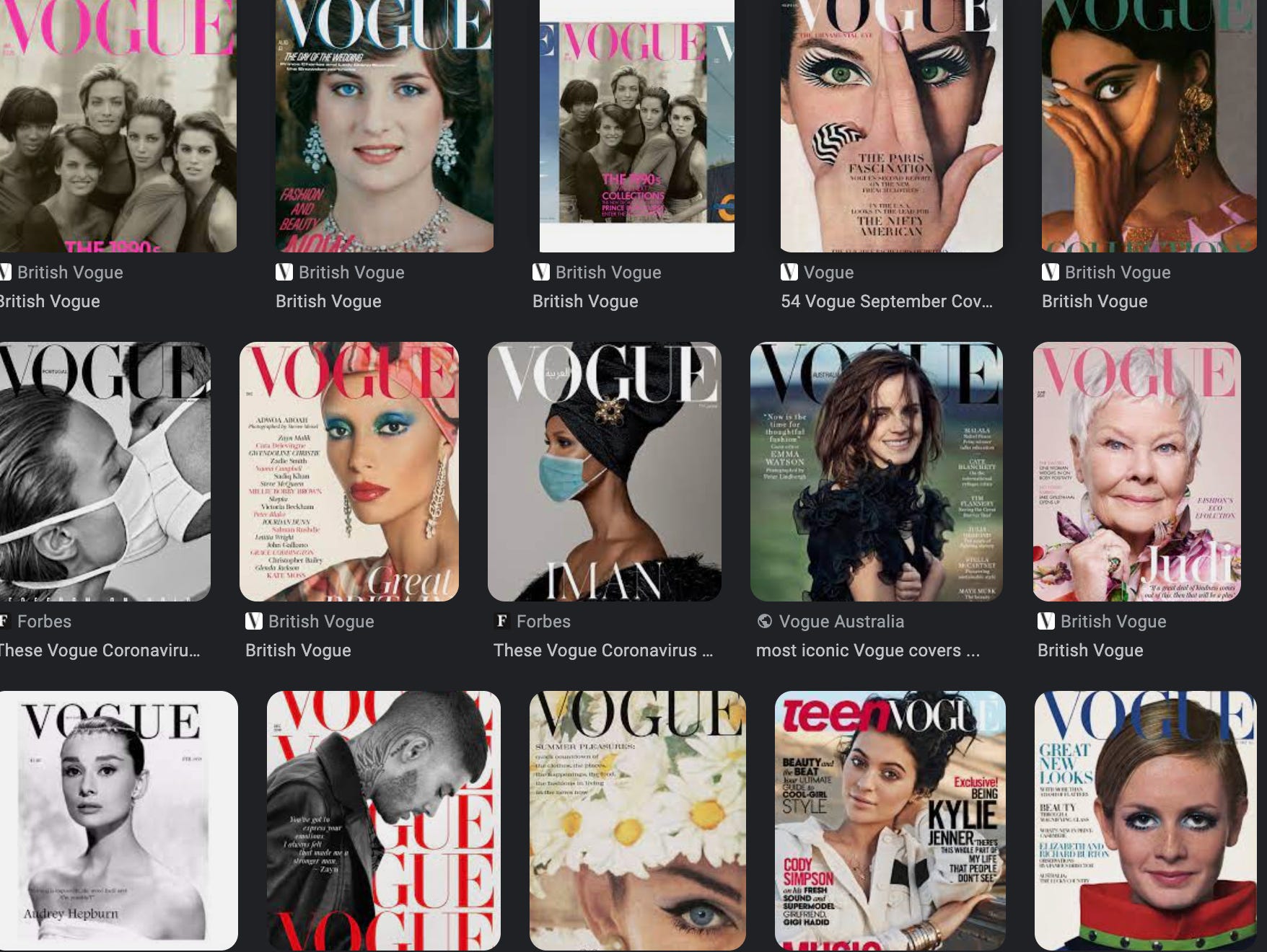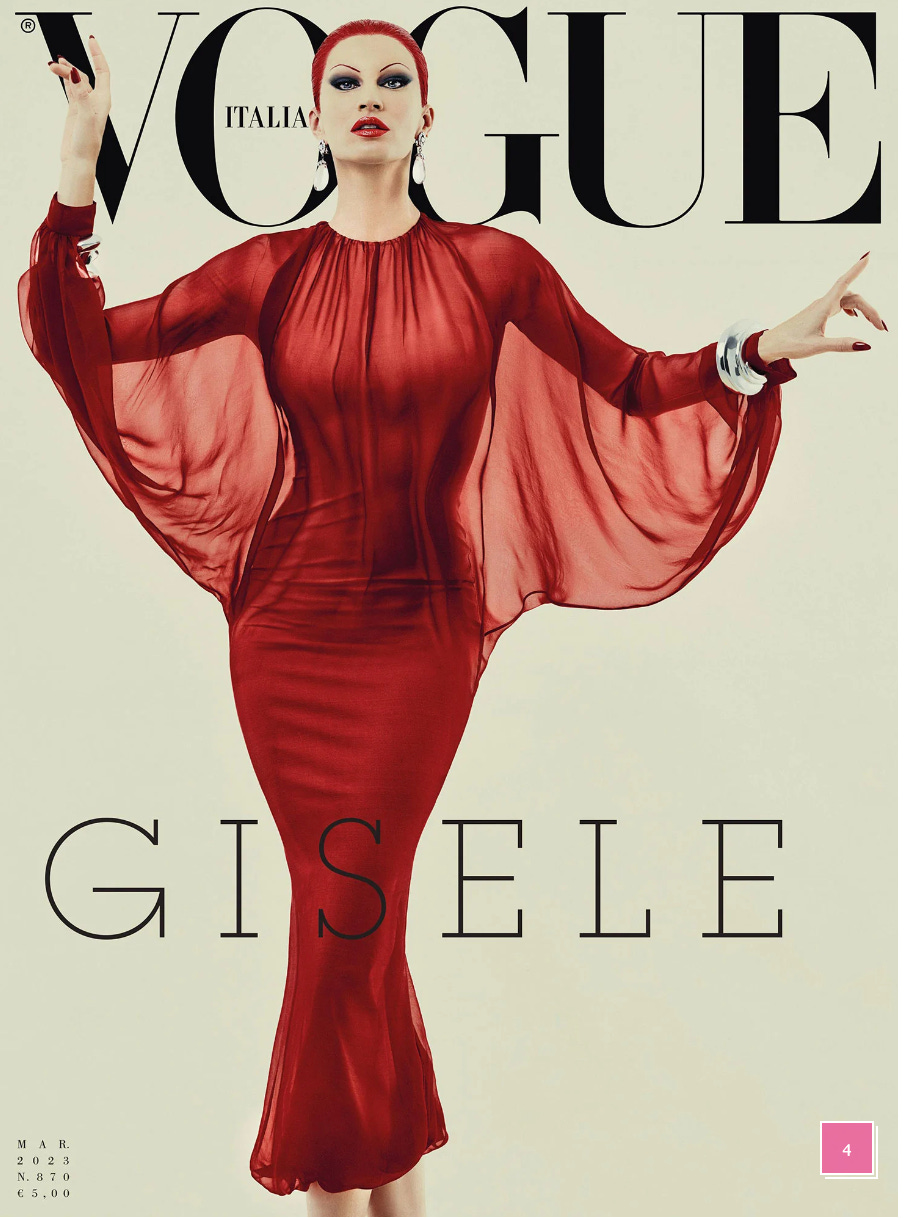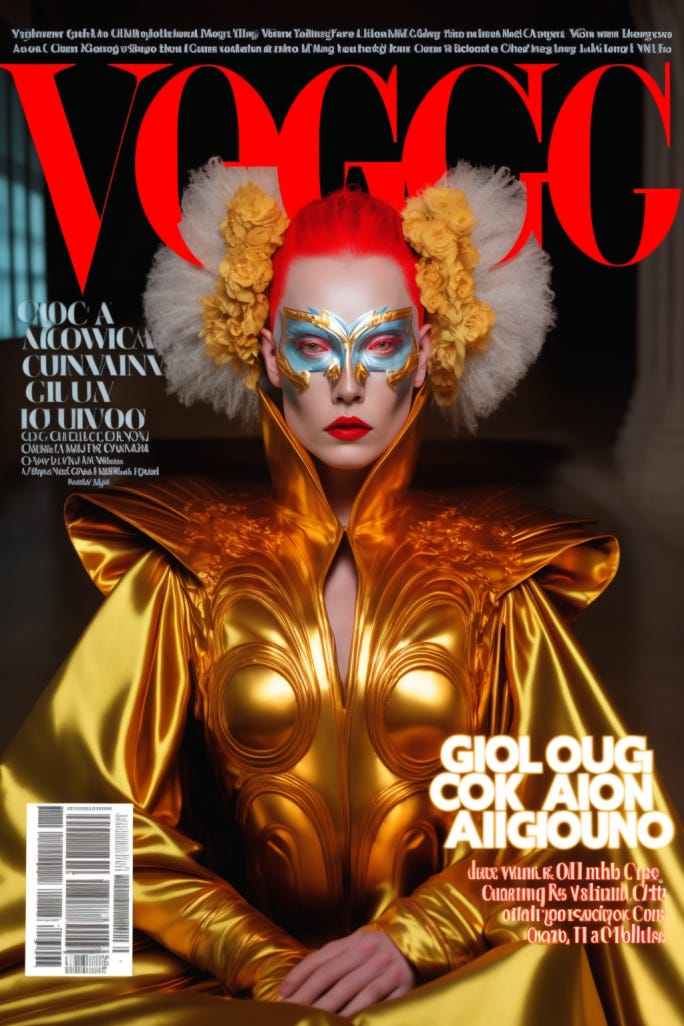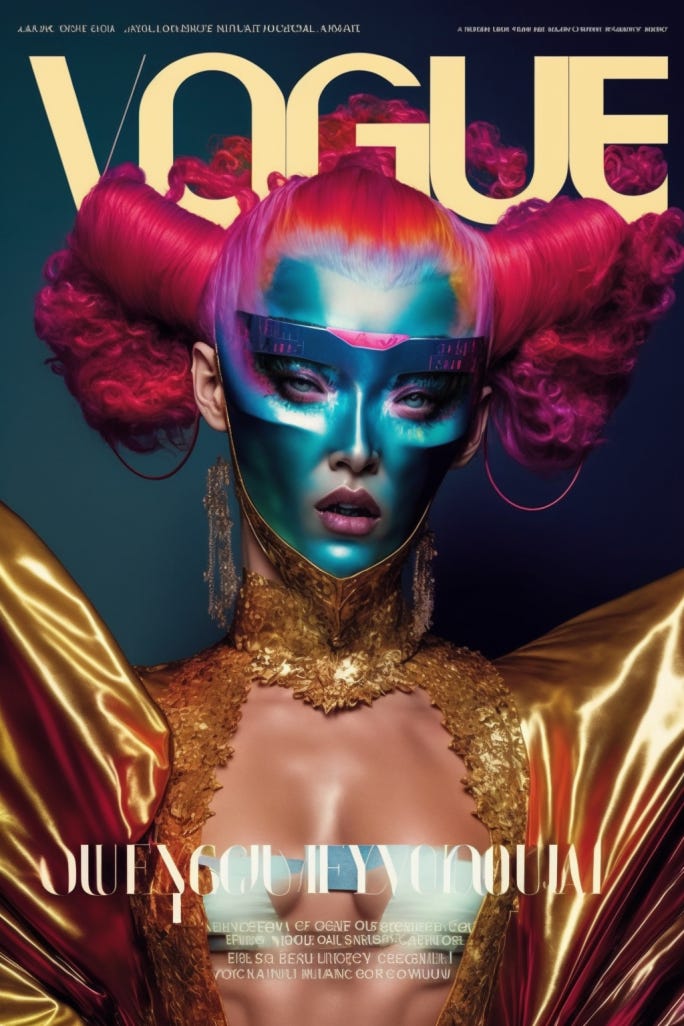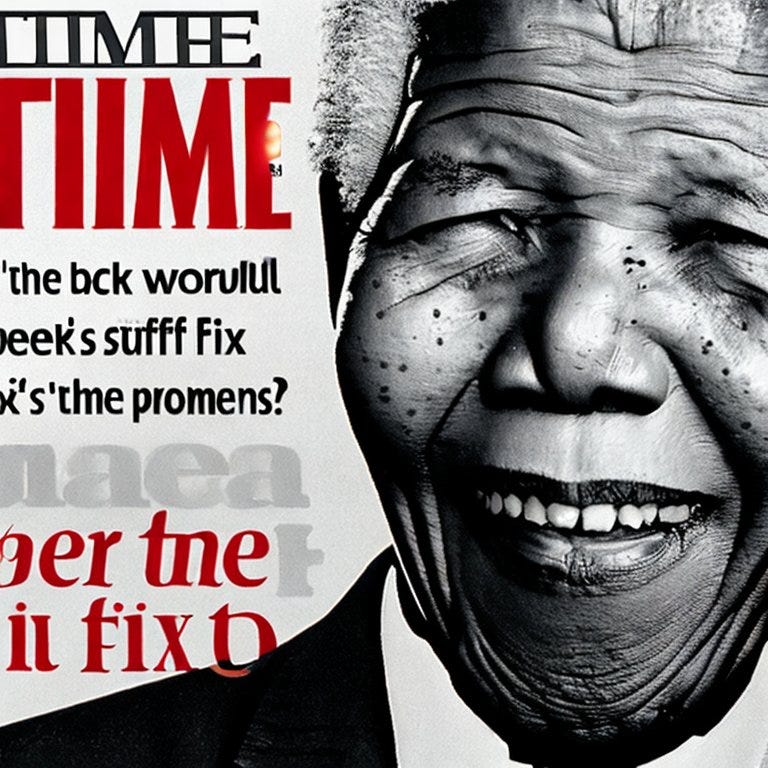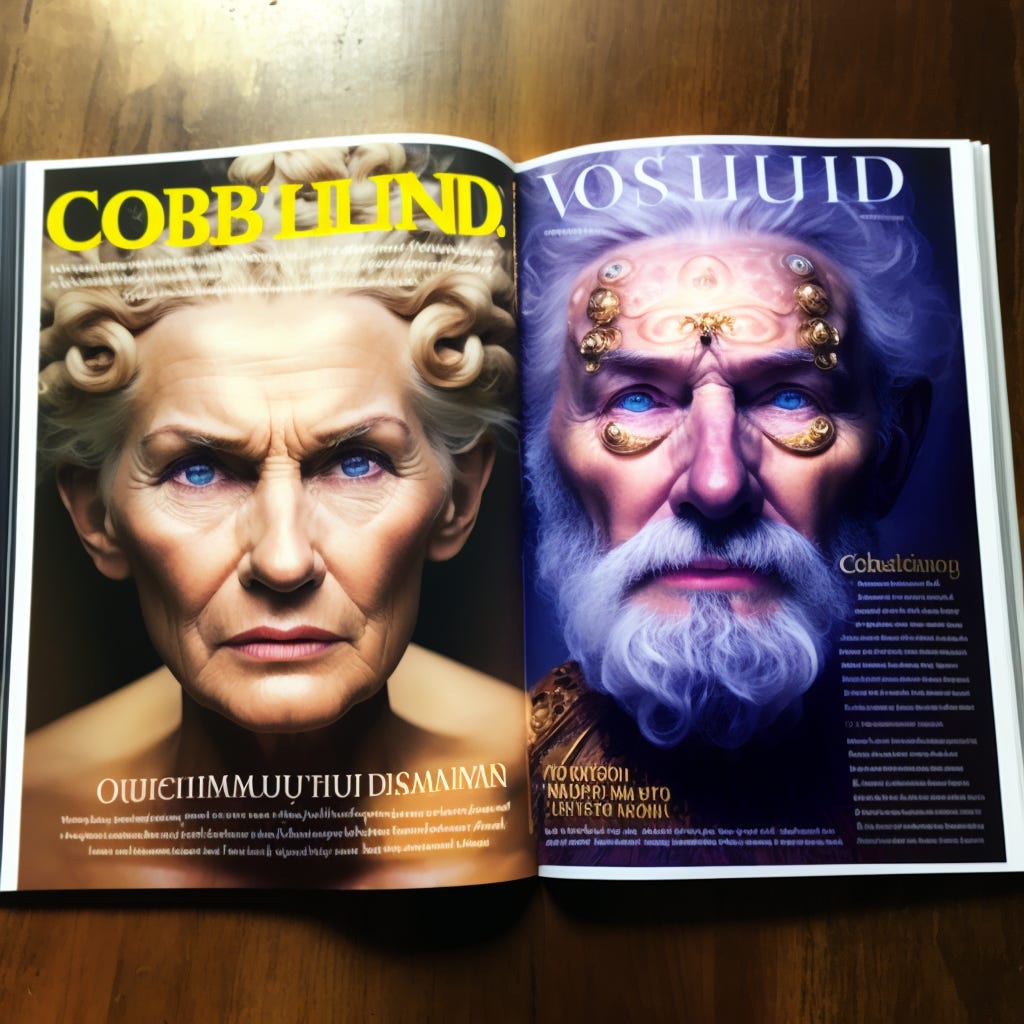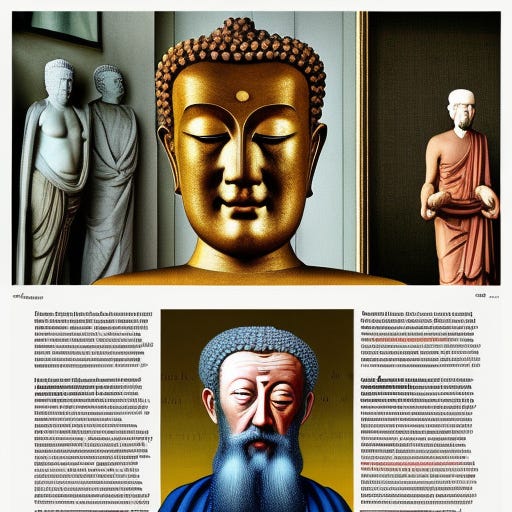Would you subscribe to AI-Generated Magazines?
It won't be long before AI tools get good enough to create completely realistic-looking content that is both unreal (as in wow) and not-real (as in made up).
Vogue is one of the most prestigious fashion magazines in the world, and its covers are seen as iconic bellwethers for what’s ‘in’.
The magazine employs top photographers, stylists, designers, and models to create stunning images that are both visually appealing and culturally relevant.
Here’s the latest cover. (23/02/23)
But what if you didn’t need all those top photographers, stylists, designers, and models to create stunning images that are both visually appealing and culturally relevant?
What if you could create these kinds of covers, and even entire culturally-significant magazines, with AI, on the cheap?
This is what I think I’ve glimpsed through these mock Vogue Magazine AI Generated Covers on Midjourney, an AI text-to-image generator popular with artists and creators.
Apart from the words being gobbledygook, I think these are visually stunning, although I’m not sure of their cultural significance beyond the fact that they’ve been generated by AI.
Still, it did make me wonder if/when fully AI-Generated Magazines would make an entrance.
What would their business models be? What would make you subscribe to a magazine like that?
And what would it take to “edit” a magazine like that?
There could be no expectation of factuality. This is not a post about AI disinformation.
These magazines would be representations of what computers predict human creators tell them is visually appealing and culturally relevant. They could look like they were about real things and real people, but they wouldn’t be. That would need to be made obvious, like Sponsored Content is signposted.
A lot of people might not even notice, to be honest.
There could be all sorts of things you could do, like, AI-generated cartoons in the famous New Yorker style.
I could generate an entire interview with Nelson Mandela for a Time Magazine cover story on how he would fix the world's biggest problems. (Mandela died in 2013).
I could ask the AI image generator to make Mandela look disappointed about being brought back from the dead to fix our problems today.
You see, it’s not that different from the real thing.
Would you pay to read a machine-generated interview with, say, Nelson Mandela, where the algorithm would predict what Mandela would say about new things based on his previous interviews?
Mandela urges us to "listen to the voices of those who are most affected by the issues," and to recognize the interconnectedness of the world's problems.
What about Top Wellbeing Tips of All Time, synthesized from the writings of Freud, Jung, Marcus Aurelius, Maimonides, and Buddha?
TL:DR, the greats say: Know Thyself, Cultivate Inner Peace, Build Strong Relationships, Practice Gratitude, Pursue Meaning and Purpose.
Marcus Aurelius wrote, "The happiness of your life depends upon the quality of your thoughts."
We’re just at the beginning of this new phase of AI-Generated content. It’s clear that the words on the magazine covers, for instance, are gobbledygook, and the images could use more realistic fine-tuning.
Still, I can’t imagine it will be long before the tools get good enough to create completely realistic-looking content that is both unreal (as in wow) and not-real (as in made up). And that some people will pay to subscribe to them.
There is a lot more disruption coming to the media industry.


